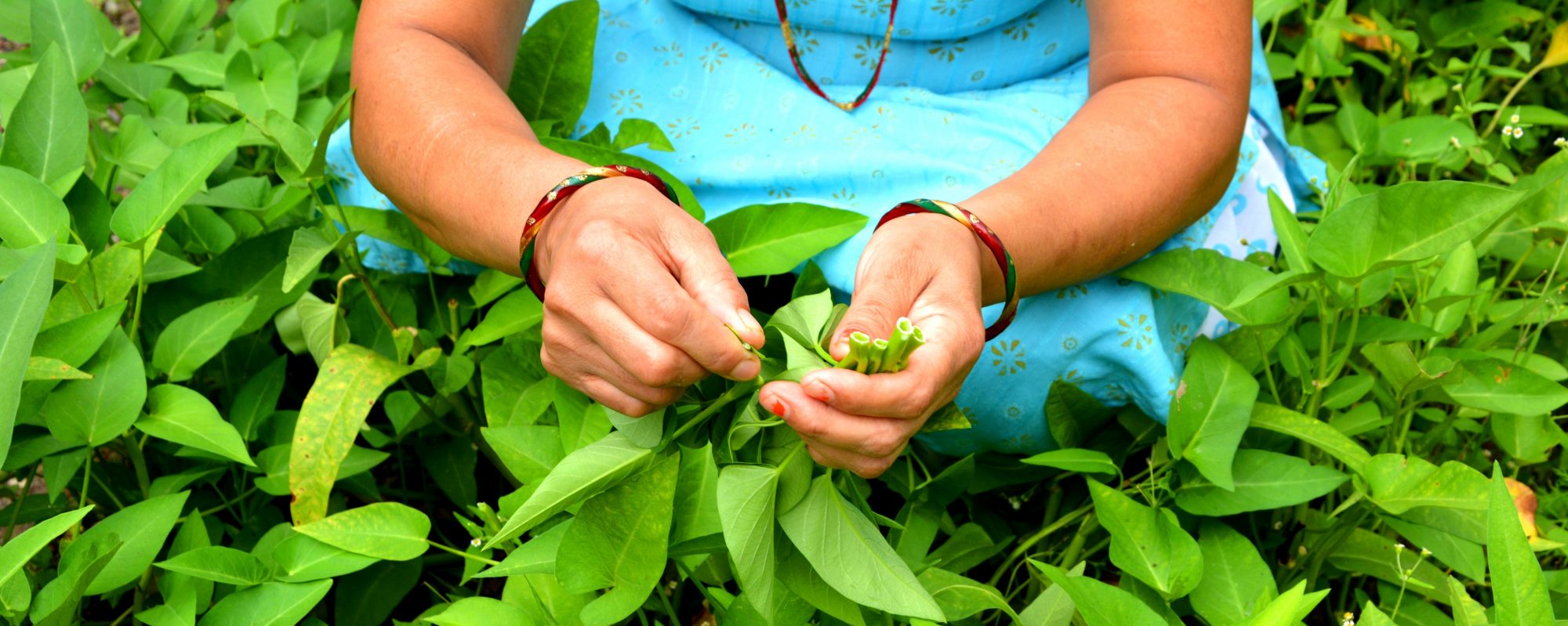
Bioversity International is a research-for-development organization that provides scientific evidence of the role that on-farm and wild agricultural and forest biodiversity can play in a more nutritious, resilient, productive and adaptable food and agricultural system. Bioversity International has been producing research solutions for almost 40 years and is based in more than 15 countries with experts in the fields of plant science, agronomy, agroecology, nutrition, economics, forestry, geography, anthropology and many more related fields.
Bioversity’s vision
A world in which smallholder farming communities in developing countries are thriving and sustainable.
Bioversity’s purpose
Producing scientific evidence to shape decisions and actions to benefit smallholder farmers and rural communities living in poverty around the world.
Agains this background, Bioversity is working towards a world in which smallholder farming communities in developing countries of Africa, Asia and the Americas, are thriving and sustainable. It focuses on rain-fed farming systems, primarily managed by smallholder farmers, in areas where large-scale agriculture is not a viable option. Its research influences policy decisions and investment in agricultural research, from the local to the global level.
Founded in 1974, Bioversity International includes over 300 scientists and staff based in more than 15 countries with experts in the fields of plant science, agronomy, agroecology, nutrition, economics, forestry, geography, anthropology and many more related fields.
Bioversity’s research generates rigorous scientific evidence which helps smallholder farmer and forest communities in developing countries – and those who work with them – find and implement practical approaches to meet today’s global challenges including: Poverty, Food insecurity, malnutrition and climate change.
‘Biodiversity for food and nutrition’
Part of Biodiversity International’s research portfolio is ‘Biodiversity for food and nutrition’. Within this research stream, Bioversity International through its leading experts is addressing the global loss of agricultural biodiversity as well as traditional knowledge associated with the preparation, storage and cultural use of these foods, which, in the past, made up a significant proportion of local diets.
The global project of the Global Environment Facility (GEF) is mainstreaming biodiversity conservation and sustainable use for improved human nutrition and wellbeing into national and global policies and programs. The project is building on growing evidence that shows that agricultural biodiversity has the potential to fulfil many of the nutritional requirements needed for a healthy and balanced diet and thus can help reverse the alarming trends in under- and over-nutrition afflicting many countries worldwide.
The evidence will be used to conserve and promote the use of agricultural biodiversity in Brazil, Kenya, Sri Lanka and Turkey by:
- Raising awareness of the importance of species diversity
- Creating markets and value chains for their use
- Making sure that future policies and strategies that tackle malnutrition include the sustainable use of agricultural biodiversity as a cost-effective solution to rising diet-related nutrition and health conditions – such as nutrient deficiencies and obesity
For further information on the Biodiversity for food and nutrition programme see or contact Danny Hunter or Teresa Borelli

